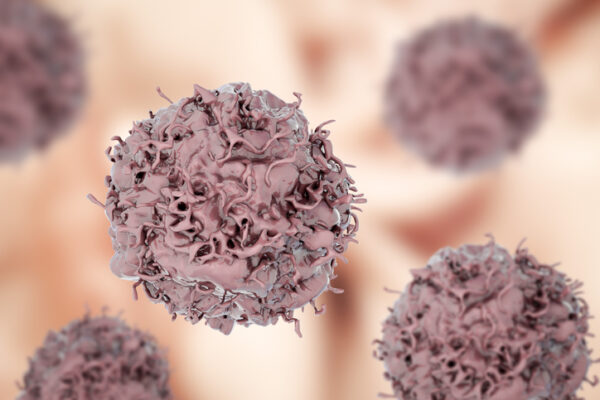
Treating cancer with medicines that tightly attach to their targets via covalent bonds is not a new concept in drug discovery, but it is picking up pace. Some companies are trying to improve this approach as they employ covalency to address elusive targets. These efforts, at least the publicly known ones, are focused on small molecules. Enlaza Therapeutics is working to bring covalency to biologic therapies and it has raised $100 million for efforts that include work in one of the hottest areas of cancer drug research.
The Series A financing announced Tuesday was led by the life sciences group of J.P. Morgan.
The binding of a drug is a chemical reaction between the drug and its target. Most drug interactions can be characterized by “on rates” when they are bound to their targets, and “off rates” when they are dissociated from them, said Sergio Duron, CEO of La Jolla, California-based Enlaza. Small molecules are cleared from the body relatively quickly, which is why these drugs must typically be taken daily. Protein drugs, such as antibodies, stay around longer, which means dosing can be less frequent. These biologic drugs also offer better targeting specificity compared to small molecules.

A Deep-dive Into Specialty Pharma
A specialty drug is a class of prescription medications used to treat complex, chronic or rare medical conditions. Although this classification was originally intended to define the treatment of rare, also termed “orphan” diseases, affecting fewer than 200,000 people in the US, more recently, specialty drugs have emerged as the cornerstone of treatment for chronic and complex diseases such as cancer, autoimmune conditions, diabetes, hepatitis C, and HIV/AIDS.
Enlaza named its covalent biologic platform technology “War-Lock.” This technology develops drugs that are nonreactive when they are circulating in the body. But when they find their target, this proximity activates them, leading the molecule to form a covalent bond. The War-Lock platform is based on technologies licensed from the University of California, San Francisco, and The Scripps Research Institute. Duron said the research involved using non-natural amino acids that are nonreactive until they are in forced proximity to a target. The research, published in the journal Cell in 2020, sparked the idea of applying this strategy to proteins, Duron said.
Unlike small molecules, which mostly work by blocking their targets, Enlaza’s biologic drugs carry therapeutic payloads. Enlaza’s initial focus is cancer, where its research interests include antibody drug conjugates (ADCs). These drugs consist of a toxic drug payload chemically linked to an antibody that targets the delivery of the therapy to cancer cells. However, sometimes the drug payload is released early, which leads to adverse effects elsewhere in the body. One way drug companies are trying to improve ADCs is with better linkers.
Using covalency to achieve selective and specific attachment to cancer cells could offer another way to improve ADCs. Enlaza aims to achieve high clearance of its drugs so they do not stay around and cause side effects, Duron said. But during the time an Enlaza cancer drug is in the body, it would have a long residency time on its target via the covalent bond.
“This is not just another ADC,” Duron said. “This is a different strategy to approach what is a very, very hot field right now where everyone is innovating on linker/payload strategies, and we are innovating on a different part of that molecule.”
Enlaza launched in 2022 backed by $61 million in seed financing led by Avalon Ventures. That capital was used to translate the science from an academic paper into a drug discovery engine. Duron said Enlaza has achieved preclinical proof of concept, demonstrating better safety and efficacy for its covalent biologic drugs. With the financing, the company will continue to develop its pipeline with the goal of reaching the clinic. Duron declined to offer a specific timeline, but said he expects “at least a couple of development candidates” will progress to clinical testing over the next several years.
The company isn’t disclosing its targets yet. But Duron said the War-Lock approach could be applied to other types of cancer drugs, such as radioligand therapies. As a platform technology, War-Lock also has potential applications in other therapeutic areas, such as autoimmune diseases. Now that the startup has emerged from semi-stealth mode, it is looking for potential biopharmaceutical industry partners interested in exploring applications of the technology. Duron said he’s looking to work with companies “that can enable our pipeline and be aligned with our vision of covalent protein drugs.”
Besides J.P. Morgan, other participants in Enlaza’s new financing include earlier investors Frazier Life Sciences, Avalon Ventures, Lightspeed Venture Partners, and Samsara BioCapital. New investors in the startup include Amgen Ventures, Regeneron Ventures, Bregua Corporation, Pappas Capital, and Alexandria Venture Investments.
Computer illustration by Getty Images














